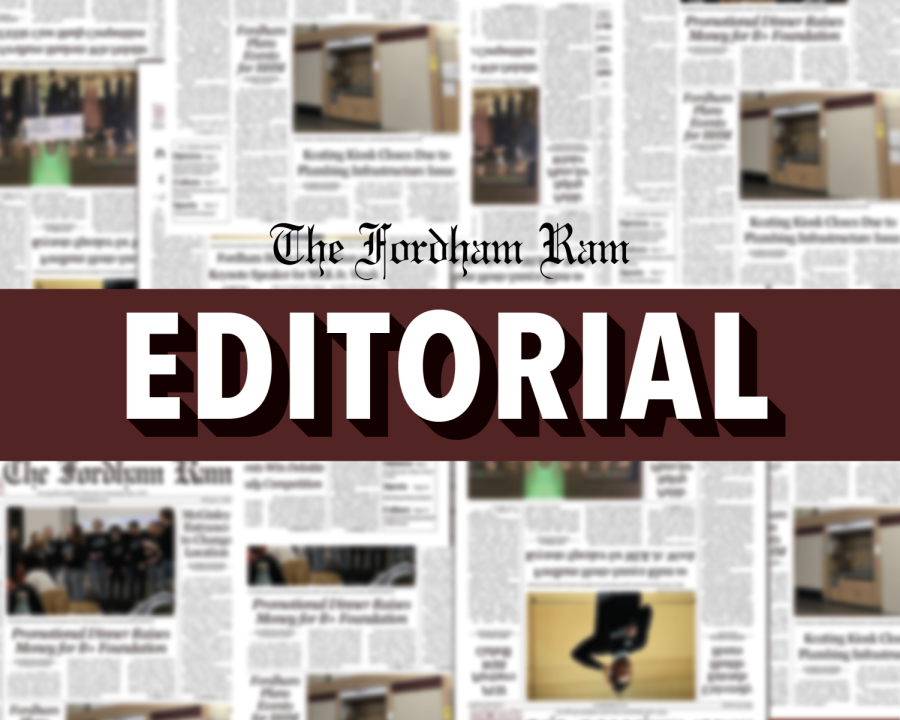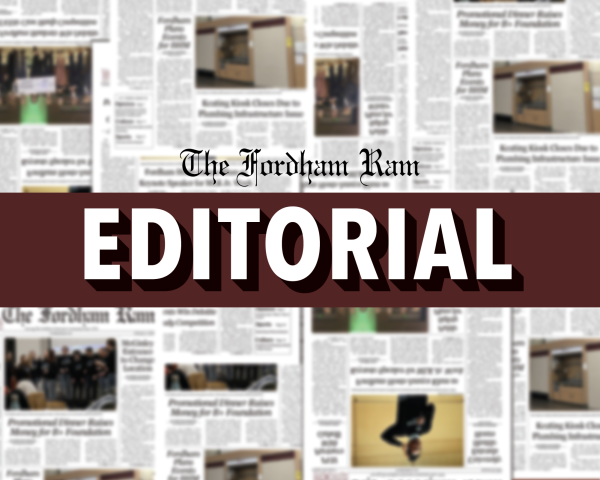Fighting to Vote at Fordham University
Just a few weeks ago, the Jesuit Student Government Alliance (JSGA) informed Fordham and other Jesuit universities of their initiative of plan to write a letter to Congress about the expansion of student voting rights. As a voice for students of Jesuit colleges, the alliance had reached out to Fordham’s United Student Government (USG) for approval on the proposal. To summarize, the letter explained that the alliance will ask that voting be more accessible for college students by permitting them to use their university student IDs to register to vote and opening polling places on university campuses.
After initially tabling the vote, USG has officially voted in favor (13-10) of supporting the JSGA’s proposal.
It is The Fordham Ram’s belief that the expansion of student voting rights is a beneficial initiative.
When analyzing the voting demographics of elections in recent years, it is no secret that college students are among the demographic groups with the least turnout in election seasons. The 2020 presidential election showed that the National Student Voting Rate (NSVR) has begun to increase (a 66% turnout rate from students in 2020 as compared to a 52% turnout rate in 2016), but voting participation is often significantly lower during midterm election seasons.
For example, despite the 52% turnout rate in 2016, the 2018 midterm elections only saw an NSVR of 40.3% which, admittedly, is still an increase from 19.3% in the 2014 midterm elections.
While the general trend shows that college students are becoming increasingly politically active, it does not mean that we should not be actively facilitating this growth in participation. As it currently stands, there are still a plethora of barriers that college students face when it comes to voting in local and national elections.
In a study on campus voting access conducted by graduate students at Duke University’s Master in Interdisciplinary Data Science program, the researchers concluded that the most significant reason cited for not voting included the inaccessibility of transportation and the lack of convenient polling places.
Specifically, 74% of college campuses lacked in-person voting opportunities and 54% of college students (6.6 million potential voters) did not have accessible voting locations on their campuses.
The JSGA’s letter to Congress addresses these issues directly. By allowing students to begin the voter registration process with their student ID, the initiative directly bypasses one of the most significant political discussions about current voting rights: the requirement of approved federal identification materials and the barriers constructed by Voter ID laws.
Voter ID laws have been proven to reduce electoral participation from American citizens and prohibit millions of electorate members from voting. These barriers disproportionately impact low-income, non-white U.S. citizens and prevent them from voting on issues both locally and nationally. While the JSGA’s letter would not help a significant portion of those negatively impacted by these laws, it would ease the stress of college students who cannot vote because they do not have the required identification materials.
Additionally, urging Congress to allow the establishment of polling stations on college campuses would help defeat the two largest barriers that college students face in voting as they were diagnosed by the Duke University students’ study. With voting locations situated on campus, students who lack transportation would now be hard-pressed to say that there are no convenient locations to vote.
While it isn’t too difficult to find voting locations in New York City, and the public transit systems available to Fordham students make it easier to get around than in most cities in the United States, having Fordham University approve of the JSGA’s plan would show progressive intent coming from the university and allow the school to be a part of the right steps toward a better future.
The Ram agrees with the USG decision to vote in favor of the JSGA’s letter, standing for the belief that any attempt to expand voting rights is an attempt to embody the democratic institutions that this country should be striving for.













































































































































































































